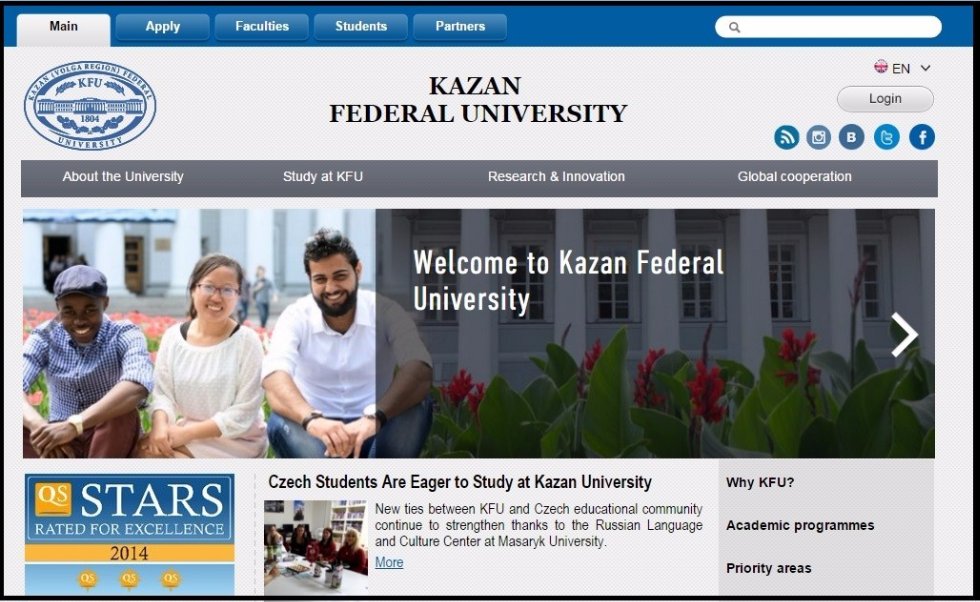Kazan University's English Website is 5th Best in Russia

Russian International Affairs Council evaluated web resources of national universities provided in English within the scope of its study dedicated to the role of the Internet on internationalization of Russian higher education institutions.
Although many of the universities of our country develop digitally-savvy websites, content management in English remains to be the main issue that these establishments face. English and its relevance in globalization are undebatable; therefore, this language becomes a powerful promotion tool in the global education environment. For this reason, Russian universities are striving to develop their English web resources.
The Council developed a system to assess the content on websites, which consists of 108 parameters in 16 blocks: information about the university, academic programs, research, library, career prospects, information for alumni etc, with each block aiming at a certain target group.
Content data of 45 leading Russian universities was analyzed in comparison with 11 foreign institutions represented in QS top 100 where English is a second language (universities in France, Germany, China, Singapore, South Korea)
The results of the study are digital internationalization indices for universities:
- National Research University Higher School of Economics (88)
- ITMO University (75)
- Skolkovo Institute of Science and Technology (66)
- Saint-Petersburg State Polytechnic University (64)
- Kazan Federal University (61)
- Tomsk Polytechnic University (58)
- Ural Federal University (57)
- Moscow Institute of Physics and Technology (54)
- N. I. Lobachevsky State University of Nizhny Novgorod
Peoples' Friendship University of Russia
Saint Petersburg State Electrotechnical University (53) - Tomsk State University (52)
The ranking demonstrates that spatial distribution of the universities does not impact its position in the list, where along with Moscow institutions we can see ones from Saint Petersburg, Kazan, Tomsk, Ekaterinburg and Nizhny Novgorod.
Such outcome for Kazan Federal can only be seen as the result of the continuous effort put to build an effective communication with foreign target groups: prospective and current students, alumni, researchers, partners, media, and ranking agencies.